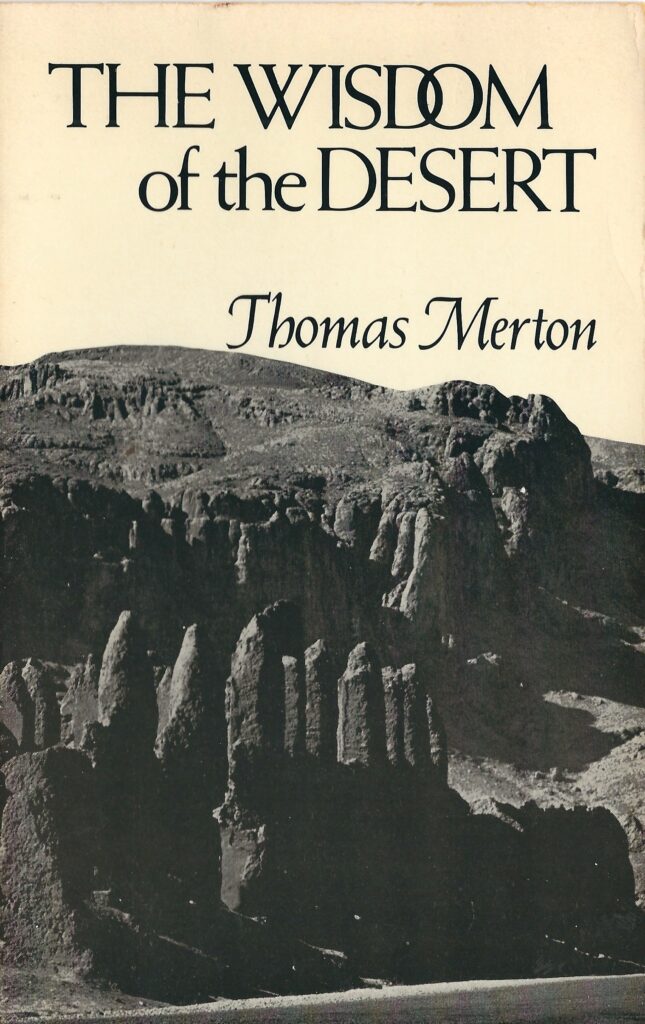Some decades back New Directions published a series of slim Wisdom books that can still serve as an engaging introduction to several religious traditions. Earlier this year, I enjoyed Stephen Clissold’s The Wisdom of St Francis and His Companions, which included the classic story of what constitutes “perfect joy.” Having recently read Thomas Merton’s Asian Journal, I decided to read his contribution to this series, The Wisdom of the Desert: Sayings from the Desert Fathers of the Fourth Century. The selection by Merton is a true labor of love, an act of homage to his spiritual forefathers. The stories and teachings can be an invitation to personal reflection or, once committed to heart, as passages for meditation in the sadhana as taught by Sri Eknath Easwaran.
Reading these countercultural sages, I thought of our Twitter-mania and cancel culture …
#10 AN ELDER said: Cut off from yourself rash confidence, and control your tongue and your belly, and abstain from wine. And if anyone speak to you about any matter do not argue with him. But if he speaks rightly, say: Yes. If he speaks wrongly say to him: You know what you are saying. But do not argue with him about the things he has said. Thus your mind will be at peace. 29
#61: ONE of the elders used to say: In the beginning when we got together we used to talk about something that was good for our souls, and we went up and up, and ascended even to heaven. But now we get together and spend our time in criticizing everything, and we drag one another down into the abyss. 47
#64 ABBOT PASTOR said: Get away from any man who always argues every time he talks. 47
#85 A BROTHER asked one of the elders: What is humility? The elder answered him: To do good to those who do evil to you. The brother asked: Supposing a man cannot go that far, what should he do? The elder replied: Let him get away from them and keep his mouth shut. 54
#101 ABBOT ANTHONY taught Abbot Ammonas saying: You must advance yet further in the fear of God. And taking him out of the cell he showed him a stone, saying: Go and insult that stone, and beat it without ceasing. When this had been done, St. Anthony asked him if the stone had answered back. No, said Ammonas. Then Abbot Anthony said: You too must reach the point where you no longer take offence at anything. 61-62
#131 ONE of the elders said: A monk ought not to inquire how this one acts, or how that one lives. Questions like this take us away from prayer and draw us on to backbiting and chatter. There is nothing better than to keep silent. 74
In his introduction, Merton wrote, “Ours is certainly a time for solitaries and for hermits. But merely to reproduce the simplicity, austerity and prayer of these primitive souls is not a complete or satisfactory answer. We must transcend them, and transcend all those who, since their time have gone beyond the limits which they set. We must liberate ourselves, in our own way, from involvement in a world that is plunging to disaster.” This book was published sixty years ago, but the call to liberation remains compelling. While entirely secular, the work of Cal Newport, on “deep work” and “digital minimalism” may offer pointers in detachment and solitude that contribute to the healing of our souls.
